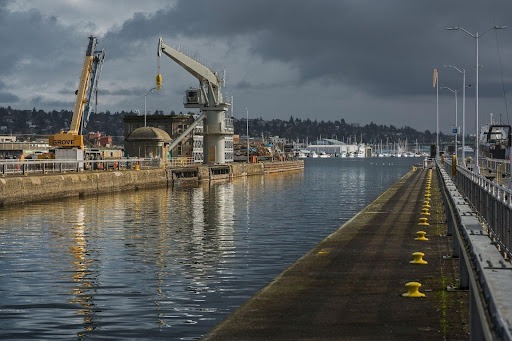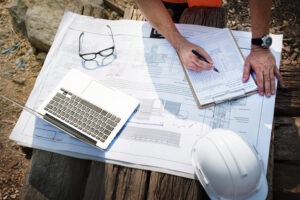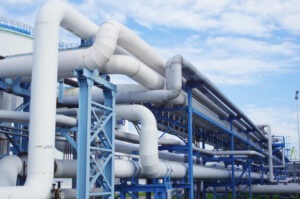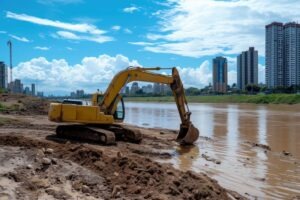Civil construction plays a vital role in water treatment projects. It involves the development and maintenance of essential infrastructure such as pipelines, reservoirs, and treatment facilities. Without proper civil construction, the entire water treatment process would be inefficient and unreliable.
In water and wastewater treatment, civil construction ensures that clean water is available for communities and industries. It includes building structures that manage the flow and treatment of water, ensuring the final product meets safety and health standards. Civil construction projects must be meticulously planned and executed to meet regulatory requirements and provide long-term solutions.
Water treatment projects are complex and require a combination of engineering expertise and practical construction skills. Understanding the role and importance of civil construction in these projects highlights the careful planning and precise execution needed to manage water resources effectively. Let’s explore this further to see how civil construction contributes to the success of water treatment projects.
What Is Civil Construction in Water Treatment Projects?
Civil construction in water treatment projects involves the design, building, and maintenance of the infrastructure needed to treat and distribute water. This includes pipelines, tanks, reservoirs, and treatment plants. Essentially, it encompasses all the physical components that ensure water can be processed, cleaned, and delivered effectively.
Civil construction is crucial for water treatment because it sets the stage for how efficiently the treatment process will run. Properly designed and constructed facilities ensure the safe handling of water from its source to the end user. This means considering everything from the materials used in construction to the layout of the treatment plant. Each element must meet strict regulatory standards to guarantee water quality and safety.
Key Elements of Effective Civil Construction for Water Treatment
1. Site Selection and Preparation: Choosing the right location for a water treatment facility is critical. The site must be accessible, have a reliable water source, and meet environmental regulations. Proper preparation of the site ensures that construction can proceed without delays or issues.
2. Design and Layout: Effective design takes into account the flow of water through the facility. This includes the placement of tanks, pipelines, and treatment units. The design must be efficient to ensure that water treatment processes are not disrupted and that maintenance can be performed easily.
3. Materials and Equipment: Using high-quality materials and state-of-the-art equipment is key to durable and efficient water treatment infrastructure. This includes corrosion-resistant pipes, high-strength tanks, and reliable treatment technologies. Quality materials reduce the risk of leaks and failures.
4. Compliance with Regulations: All civil construction projects must adhere to local, provincial, and federal regulations. This ensures the safety and effectiveness of water treatment facilities. Compliance is necessary to meet health standards and environmental protection guidelines.
5. Maintenance and Upkeep: Regular maintenance is essential for the long-term success of water treatment facilities. This involves routine inspections, repairs, and upgrades to ensure that the infrastructure continues to operate efficiently and safely. Maintenance plans should be established during the design phase.
By focusing on these key elements, we can ensure that civil construction projects for water treatment are successful and sustainable. Each aspect plays a crucial role in providing clean, safe water to communities and industries.
Step-by-Step Process of Civil Construction in Water Treatment Projects
1. Initial Planning and Design: The first step is to plan and design the water treatment project. This involves understanding the requirements, surveying the site, and creating blueprints. Engineers and architects work together to ensure the design meets all regulatory standards and operational needs.
2. Permitting and Approvals: Before construction can begin, we need to obtain the necessary permits and approvals from local, provincial, and federal authorities. This step ensures that the project complies with all relevant regulations and environmental standards.
3. Site Preparation: Once permits are obtained, site preparation begins. This step includes clearing the site, conducting soil tests, and establishing temporary facilities for workers. Proper site preparation is crucial to prevent future issues during construction.
4. Foundation and Structural Work: The next step is to lay the foundation and build the structural elements of the water treatment plant. This includes constructing the main building, installing tanks, and setting up support structures for pipelines.
5. Installation of Equipment: After the structural work is complete, we move on to installing the essential equipment. This involves setting up pumps, filters, and treatment units. All equipment must be tested to ensure it operates correctly.
6. Connection of Pipelines: The civil construction team then connects all pipelines. This is vital for ensuring the efficient flow of water through the treatment process. Proper installation prevents leaks and ensures longevity.
7. Testing and Commissioning: Finally, we test the entire system to make sure everything works as planned. This step includes running various tests on water quality, equipment performance, and system efficiency. Once everything passes, the plant can be commissioned for operation.
Common Challenges and Solutions in Water Treatment Civil Construction
1. Regulatory Compliance: Meeting regulatory standards can be challenging due to the complexity of rules and the need for multiple approvals. Solution: Engage with regulatory bodies early in the project to understand requirements and incorporate them into the design and construction plans.
2. Environmental Impact: Construction activities can negatively impact the environment, such as disrupting local ecosystems. Solution: Conduct thorough environmental impact assessments and implement mitigation strategies like erosion control and wildlife protection measures.
3. Budget Management: Keeping the project within budget is crucial but can be difficult with unexpected costs. Solution: Conduct detailed costing analysis during the planning phase and set aside a contingency fund to cover unanticipated expenses.
4. Workforce Management: Coordinating between different teams and ensuring skilled labour is available can pose challenges. Solution: Develop a comprehensive project management plan that includes detailed schedules and resource allocation.
5. Weather Delays: Adverse weather conditions can disrupt construction timelines. Solution: Prepare a flexible construction schedule that accounts for weather-related delays, and have contingency plans in place.
6. Material Shortages: Delays in the supply of materials can halt construction work. Solution: Establish strong relationships with reliable suppliers and order materials well in advance to avoid shortages.
By addressing these challenges proactively, we ensure the smooth execution of civil construction projects in water treatment.
Conclusion
Understanding civil construction in water treatment projects involves recognizing the intricate processes and essential elements that contribute to clean and safe water. From the initial planning stages to overcoming common challenges, each step is vital for the project’s success. Proper planning, regulatory compliance, and the use of high-quality materials ensure a reliable water treatment facility.
Civil construction not only supports the infrastructure but also enhances the efficiency of water treatment, benefiting communities and industries alike. By being prepared for potential challenges and having effective solutions in place, we can ensure that water treatment projects are completed on time, within budget, and to the highest standards.
If you’re looking to implement a water treatment project with top-notch civil construction, contact Industra today. Our expertise in EPC design-build and construction services can help you achieve your goals efficiently and effectively.

















